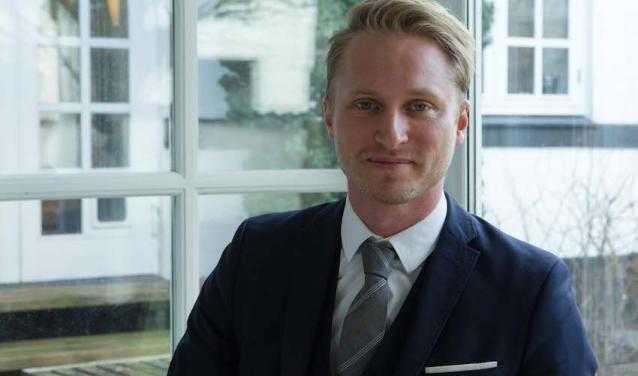Home>“I wanted to keep working with my classmates”

17.03.2016
“I wanted to keep working with my classmates”
Tore Hamming graduated from the Sciences Po Paris School of International Affairs (PSIA) with a Master’s in International Security specialising in the Middle East and Africa in 2014. After Sciences Po, he founded the consultancy MENA Analysis with one of his friends from PSIA.
- What is the story behind MENA Analysis?
When I was back in Denmark, I realised that many of the Sciences Po PSIA graduates worked in high positions in the Middle East. I thought we should take advantage of these connections and the easy access we had to the region.
I also wanted to keep working with my classmates. I realised that we formed a group of experts on the region who had enjoyed working together for two years. I thought we could really offer something different, certain skills and a mindset that would set us apart from other consultancies.
So I decided to leverage these skills and relationships, and launched MENA Analysis in January 2015 with a Sciences Po graduate who now lives in Irak. In creating MENA Analysis, we did nothing more than bring together talented people who like to work together.
- How are the skills of the MENA Analysis team different from those offered by other consultancies?
When I arrived at Sciences Po PSIA, I was impressed by the very thorough knowledge of the students working on the Middle East. Today MENA Analysis draws on this academic excellence and genuine interest in the region. We are a worldwide network that brings together Middle East experts who are all passionate about the region.
The team mostly consists of Sciences Po graduates now living in Lebanon, Turkey, Saudi Arabia, Irak, France, and Denmark, and we also engage with analysts who graduated from other universities such as LSE or SOAS. We don’t want to be entirely Sciences Po-centric because the insight of people from other academic traditions is invaluable.
Analytical skills are essential for work in a consultancy, and MENA Analysis leverages the excellent analytical skills of Sciences Po graduates. Developing students’ analytical skills is really something Sciences Po is good at; it is something you practice constantly during your time at the university. Working with Sciences Po graduates, you also appreciate their hands-on experience and their practical skills. Sciences Po prepares students to be immediately effective when they enter the professional world.
- What kind of assignments do you typically work on at MENA Analysis?
The range of topics we work on is relatively broad. We have analysed the post-election situation in Turkey, the security situation in Libya, and the resilience of the Lebanese army; we have been approached for an analysis of the cultural environment in Egypt, and by the Omani government to set up a think tank in Oman. We intend to work mainly on issues related to risk analysis, and with the competencies in the network I believe we offer organisations, institutions and even government agencies a serious and interesting alternative to conventional consultancies. Our analysts are particularly strong on energy, threats to social cohesion such as non-state armed actors and IDPs, general risk assessments and conflict sensitivity programs, so these areas are our main focus. However, we have recently started to concentrate more on the business environment in Iran after the lifting of the sanctions regime, so we are constantly developing.
- What advice would you give students who will be entering the job market in the coming years?
The job market nowadays favours people who have not only skills, but also a network. That‘s why it is so important to build a network during your studies, and this is often something you have to do by yourself, especially at Sciences Po where the workload is quite heavy. You have to use your initiative and seize opportunities to nurture your network, for example by taking advantage of all the conferences organised at Sciences Po and by creating connections with the people you meet during your internship, not to forget the faculty.
- What did you choose Sciences Po for your Master’s degree?
I came to Sciences Po because of the researcher Stéphane Lacroix. I had read his book Awakening Islam and I thought ”I have to work with this guy!” That is exactly what I actually did during my Master’s thesis at PSIA. Basically, my experience at Sciences Po was just fantastic. This is a good institution, where you engage with good professors and good students. My time at Sciences Po allowed me to grow as a student and as a person because I met people from very diverse backgrounds and nationalities.
Related link
Learn more about graduate studies at Sciences Po